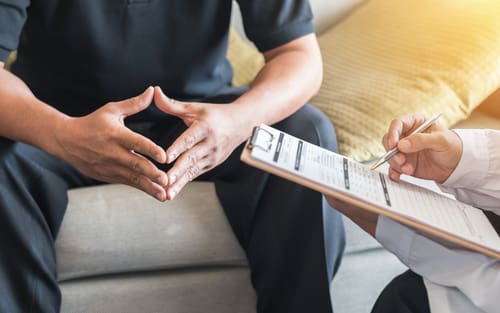
A pop up mental health clinic? Never heard of it? Nor had I until recently when I read an article on how pharmacies are getting into the game of mental health care. Soon, it seems, we will all be able to roll up to our local pharmacy and not only pick up our prescriptions, but see a therapist on site as well.
As a therapist myself I wondered what does this mean for not only me as a provider, but also for the patient. Certainly the pandemic over this past year has taught all of us that access to mental health care is not only necessary for everyone, but also needs to be accessible with few barriers to receiving treatment. In terms of access, rolling up to your pharmacy and having access to a therapist on the spot feels like this need is being met.
However, I have my questions. Therapy is broad with many therapists offering a range of different types of care for many different types of symptoms and upset. From anxiety to depression to severe illness such as schizophrenia, therapists treat people suffering from all of these and much much more. Given this broad range of mental health ailments, most therapists specialize in an area. The specialization comes from study, their experiences, and their interests. When someone is looking for a therapist, they are often trying to find someone who matches what their needs are.
Walking into a pharmacy, I wonder how people will be matched up. Will it run like a crisis line where whomever walks in gets the next available therapist and the meeting is for the therapy hour (45 to 50 minutes) and then the person gets up and walks away and hopefully feels better with no charge or is it going to operate like a low fee clinic, charging a low fee, and patients have a choice of whom they see and have the option of returning and seeing the therapist on a regular basis?
I also wonder will pharmacies tie people to a therapist based on their prescriptions. Let’s say someone is picking up an anti-anxiety medication and the pharmacy staff not only gives the patients their script, but also the names of therapists in their clinic that they encourage you to see alongside taking your medication. The flip side of this is a therapist who sees someone for anxiety and then sends them to an in-house medical doctor who then prescribes anti-anxiety meds that get filled right at the counter. Convenient one-stop mental health help.
Those two points, i.e. that therapists seeing patients in such pop up mental health clinics, actually have the experience to support whom they are seeing in the pharmacy and that this is not just a grab to prescribe more meds to the public, are the places where I feel concern. This article does not disclose the details of these plans, just to say this fad is coming our way.
The article lists out questions that patients should hold in mind when they meet a therapist, but, truth be told, when people want to talk to somebody such questions often go out the window as their distress is so keen, it is difficult to hold in mind who is this therapist and do I feel comfortable with her? It is then on the therapist to hold on to their minds to decide if they can serve a potential patient or not. If a therapist does not think she can, does she have the ability to not take someone on? In community mental health, that choice is often not there for the clinicians, but will it be in corporate America?
Mental health is serious and corporate America is seeing it as its own power play and grab. Ethically one needs to safe guard themselves from a fast food approach to mental health care. Yes, something is better than nothing, but sometimes fast therapy does little to change anything.
As a practicing therapist in Capitol Hill, Seattle, I believe mental health care should be available to all, but in a responsible way. There are low-cost clinics and websites where Clinicians offer their services at a deep sliding scale. Finding this type of therapist for a long-term relationship feels important as the therapist can then track alongside you your progress, setbacks, and provide a containing space that is ongoing and built on trust. I believe in this type of approach for the work we do together.
Yet! I won’t be surprised to walk into a pharmacy next time and see a line of therapists waiting to see you and me.

